Virtual 60-second ‘business pitch in a lift’ contest helps tech start-ups move ahead in tough times
- Online fifth edition attracts 77,000 live views as 10 finalists, including three from Hong Kong, to vie for total cash prize of US$200,000
- HKSTP helps promote city as two-way platform for budding global entrepreneurs to gain foothold and attract international investors
[Sponsored article]
In one of the toughest years for global economies, Hong Kong has once again proved its capacity for recovering from difficulties, ranking first in Asia on the 2020 FM Global Resilience Index.
The city’s status as a global financial hub remains as strong as ever, with its huge potential for budding entrepreneurs and opportunistic investors – especially those in the innovation and technology (I&T) sector.
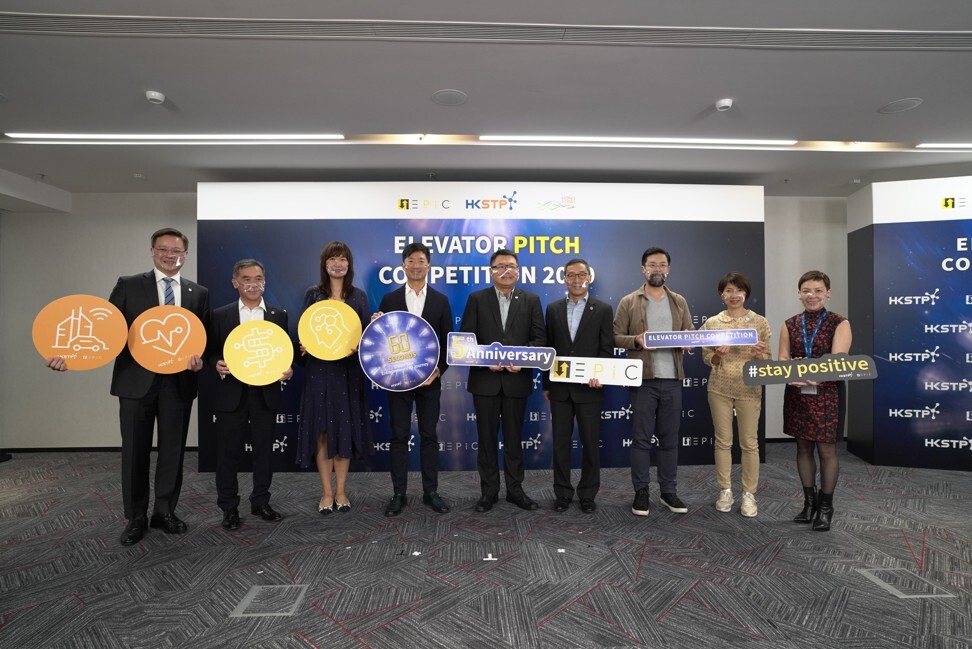
Joseph Fung, managing partner of Saltagen Ventures, an early-stage venture capital firm, said many start-ups see Hong Kong as an ideal base for them to scale up and expand to other markets as the city provides them with ample opportunities to secure funding and meet investors, notably among hedge funds looking for tech investments.
“As a global nexus straddling [the] East and West, Hong Kong gives people the opportunity to look on both sides,” Fung said. “Beyond its singularly important role, Hong Kong can be a gateway to the rest of the world.”
Support from the incubation and business matching programmes facilitated by Hong Kong Science and Technology Parks Corporation (HKSTP), a cradle for I&T advancement in the city, also lowers the market-entry barriers often faced by start-ups.
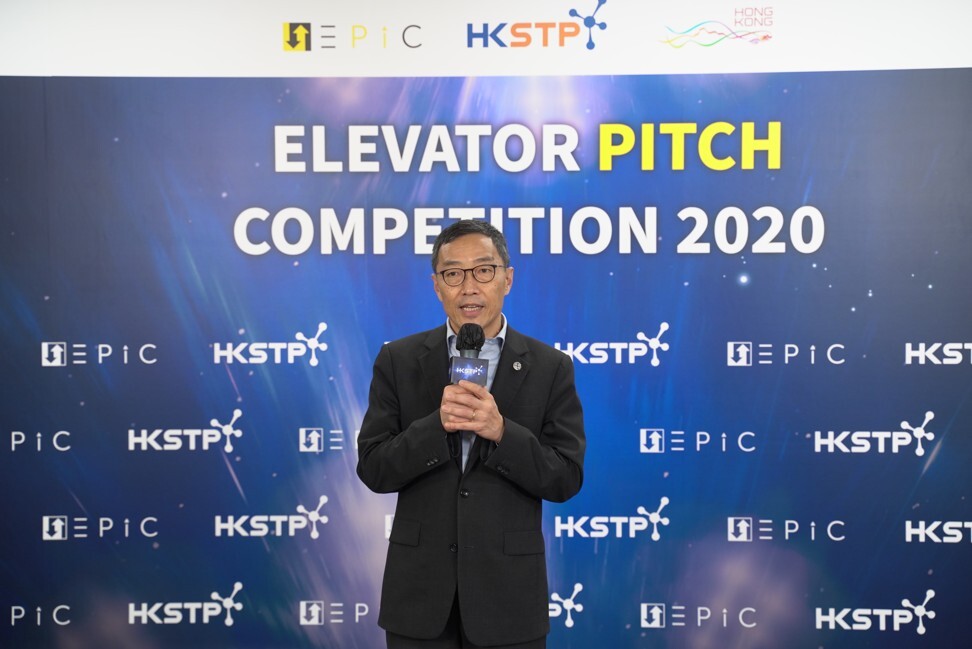
Albert Wong, CEO of HKSTP, knows that getting out of the starting gate is not easy for start-ups.
“Normally, when a start-up pitches to a potential investor, they might only get 10 seconds to make an impact,” he said. “You need to catch their attention immediately.
“Innovation is not just inventing a new science, but finding the application – finding a user. In most cases, investors will get not just the technology, but how you can make it work.”
In a unique concept gaining increasing global exposure, Hong Kong’s annual Elevator Pitch Competition (EPiC) brings innovation to life. It gives tech start-ups 60 seconds to tell their story to a panel of judges and investors – holding their attention for the minute it takes to ride a lift to the top of Hong Kong’s tallest skyscraper, the International Commerce Centre.
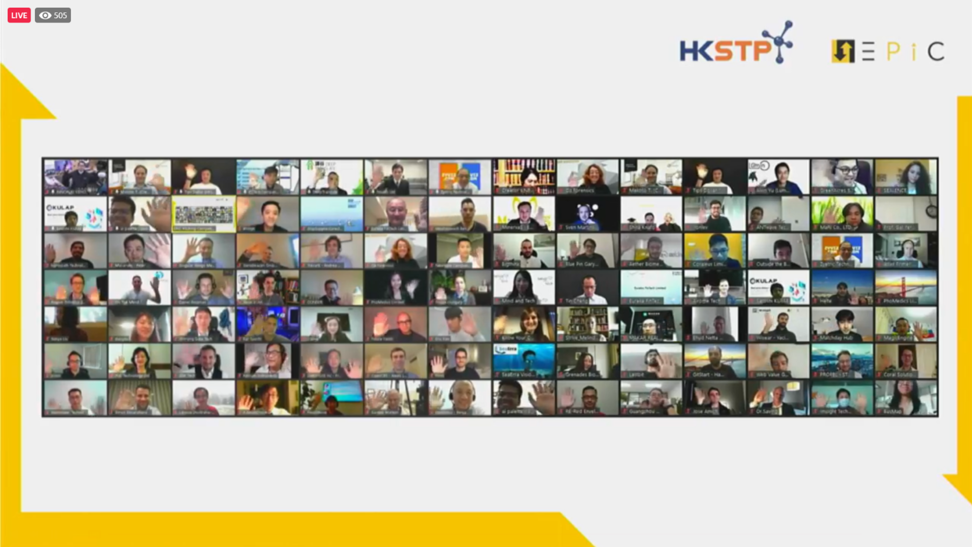
This year’s fifth edition, featuring an online format for the first time, demonstrated the event’s enduring value.
The virtual EPiC, which attracted 476 contestants from 37 countries and cities across five continents, saw 170 semi-finalists – 70 per cent from overseas – participate in the week-long programme to explore business and investment matching opportunities.
With the world watching, 10 finalists with the most compelling ideas, including three from Hong Kong, presented their live pitches on November 6, as they vied for a share of prize money totalling US$200,000.
Mi Terro, a United States-based biotechnology start-up, led by CEO and co-founder Robert Luo, was named overall EPiC champion.
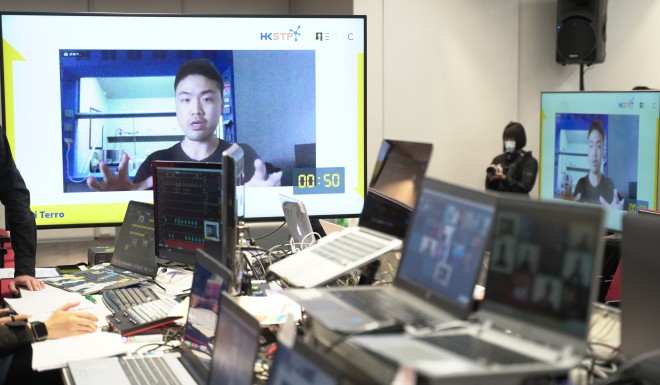
The company, which also won the competition’s Smart City category, upcycles and re-engineers protein food waste into plastic and cotton alternative fibres for use in the fashion, medical and packaging industries.
“[EPiC was] a great opportunity for us to not only spread the word about our technology, but to gain support from a variety of audiences,” said Luo, who started to think about creating solutions to food waste after a visit to his uncle’s dairy farm in China.
“Winning EPiC is a validation for our business and our vision. It helps us understand what the market needs in these current crucial, unprecedented times.”
He added: “We were able not only to meet investors, but also other entrepreneurs who are finding innovative solutions to target some of the world‘s biggest problems. And we’d love to climb with them, to expand beyond our comfort zone.”
RUBYnanomed – a spin-off of International Iberian Nanotechnology Laboratory (INL) – won the Health Tech category.
The Portugal-based start-up has developed a technology that enables the early diagnosis of metastasis for non-invasive cancer monitoring through liquid biopsy, which automatically isolates and classifies cancer cells in circulation.
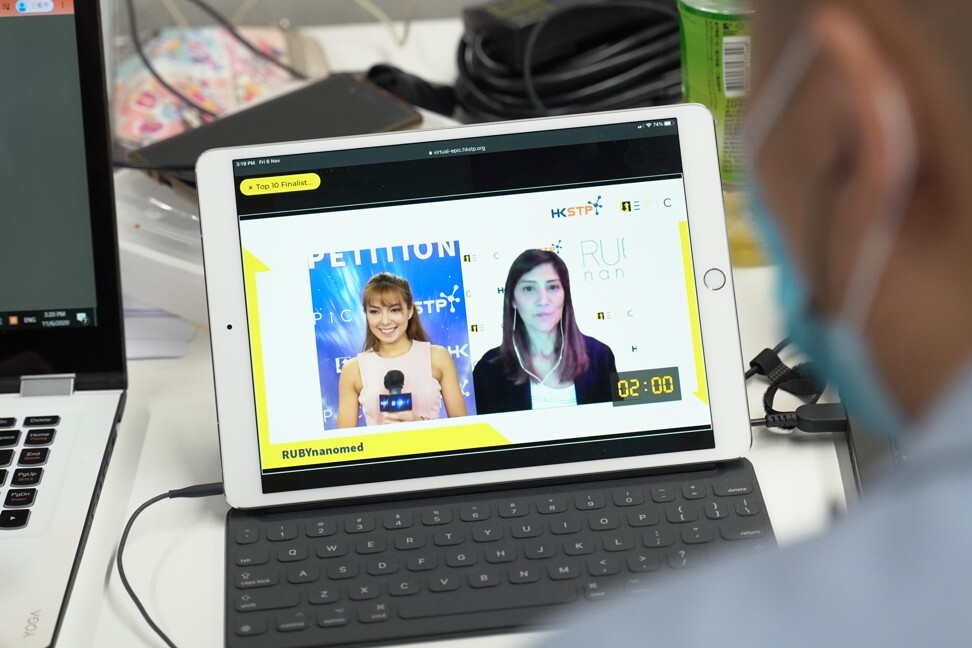
Lorena Diéguez, CEO of RUBYnanomed, said the prize money and the exposure offered by EPiC are important for helping start-ups develop their businesses.
“The right connections we’ve made [through this event] not only accelerate our business, but also help us find partners in Hong Kong that can open us to Chinese markets,” she said.
Fung, who was EPiC’s lead judge, said the quality of the participants shows that opportunities are to be found even during challenging times, although he advises start-ups to be more careful and be clear about their strategies, especially in risk mitigation.
“You need to mitigate risk over a period of five to seven years,” he said. “Having a team of people that can engage, be much more flexible, and not overextend in terms of capital deployments is crucial.”
The competition marked the start of a week of online EPiC events helping start-ups go to market and scale game-changing ideas. Global Matching sessions, helping spark cross-border investment opportunities, were held from November 9 to 12, with an Investment x Corporate Innovation Conference, focusing on I&T heavyweights and global pioneers, on November 13.
Wong said HKSTP has invested considerable time and resources to strengthen Hong Kong’s investor ecosystem, in addition to building the city’s vibrant technology incubation system.
”Today we have a network of over 1,000 early-stage investors, including venture capitalists, angels, private equity and family offices, raising close to US$3.8 billion in investment in the past three years,” he said. HKSTP also has a corporate venture fund, HKSTP Ventures, with an asset-under-management value of about US$80million.
“We make it an important strategy to bring in early-stage investors from angel [funding to launch new firms] to seed [the first few rounds of funding] to A-rank [later, larger rounds of funding], because in Hong Kong, we have very good research capabilities.”
Wong said companies, including those in traditional businesses such as real estate, logistics or hospitality, should leverage the technologies developed by start-ups because they can create solutions to meet market needs with their ability to change fast.
“Through collaboration and co-creation we can help corporates find new ways to do a better job, especially in difficult times like now,” he said. “It’s through technology and its adoption that the start-ups can find what the real world is all about.”

